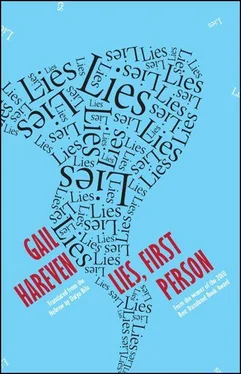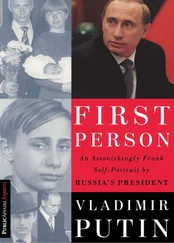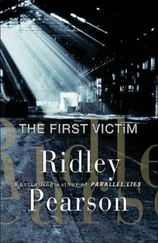Albert’s serious difficulty, his problem, is that in every accepted sense of the words he is a good man. And however much he examines his mind and his past, he cannot find any dimension of Satanic evil in them. A miserable affair of a broken engagement, the firing of a secretary for no good reason: the only reason he fired her was that he couldn’t stand the silly way she laughed — it was all as petty as a child stealing apples. In order to understand the workings of pure, distilled, inhuman Satanic evil, you had to experience it in action. And this meant that Albert would have to get rid of humanist sentiments and become evil himself.
Months of mental agonies follow. He falls ill again. He thinks of suicide. His nerves are exhausted. The diary grows more and more confused. But to cut a long story short — Not-man suddenly started talking very fast, as if in a show of self-contempt — the long and the short of it is that in the month of October, at the end of the monsoon season, Albert defiles himself with a terrible act. Nothing could be more foreign to his soul than the crime he commits, and it is precisely for this reason that he believes he must commit it.
He seduces his maidservant’s daughter, he forces himself on a child of ten.
Oded suddenly moves. For a moment it seems to me that his movement is directed toward the figure in the shadow of the wall, but no: he signals to the Baradanshvilis’s son who peeks into the courtyard. My bodyguard is sitting with his back to the entrance, and nevertheless he senses his presence, as if he had eyes in the back of his head, and now he signals him that we’re fine, we don’t need anything. The lad asks if it’s okay with us if he goes out for a few minutes to load some paintings into the car, and Oded signals his agreement. Only when the son leaves does my husband open his mouth and addresses the First Person:
“So that’s it, that’s your story?”
“Actually we’ve only reached as far as two thirds of the novel, and I must emphasize again that it is a novel, in other words, a work of fiction. What happens in the last third of the book, which I haven’t finished writing yet, is that Albert comes to realize that he has fallen victim to a Satanic trick. The great work that Albert thought he would write does not get written, and all that he succeeds in producing despite all his efforts is a confused, childish text. There is a philosophical concept called ‘moral luck,’ and Albert in a certain sense is unlucky, a man with no luck. The victim of a mistake in evaluation. If he had been lucky and succeeded in writing a work of cultural significance, something that would really have enriched his fellow man, then perhaps, I say perhaps. . with thoughts like these he tortures and flagellates himself. But Albert’s tragedy is that he is a poor, mediocre writer, and from now on he will have to live with the knowledge that he defiled his soul for nothing. The book is not yet finished, but as intelligent readers it must be clear to you how it ends. Albert has to die, the only question is how. How will he die — this is not yet clear: by a human hand or by the hand of providence; the intervention of what we might call force majeure; what could be interpreted as divine intervention, seen as the intervention of a higher power. As potential readers, I would be glad to hear your opinion.”
“And this is the book you’re going to publish,” my husband says as if weighing the words in the balance, and the voice replies, “A superficial summary of it,” and adds the name of a publisher unfamiliar to me.
I’m holding something in my hand: a metal can. And the metal doesn’t cool my hand. The voice had gone on forever, like a nightmare, and stopped in a second, like a nightmare, and at some point I had started to play absent-mindedly with the painting gear on the table. There was a moment when I caught myself playing with a piece of chalk, only to return it with disgust to the jar. Now this metal object: wet with the sweat on my hand, resisting my attempts to crush it.
“I’m quite an unsophisticated reader, so explain to me,” says my husband, “explain to me: did Pol Pot rape children?”
A moment ago he was alert enough to register a movement behind his back, and now like a blind child he steps right into the filth in front of him. In a minute he’ll touch it, in a minute the pus will infect him.
Red shame, red rage, something red flares and spreads over the nape of my neck: I should have found the strength to tell Oded to go. Go away, go, go now — soundlessly I implore the good man innocently asking and sincerely wanting to know.
And already the tongue clucks, pouncing triumphantly on the obtuse student, and the mouth replies in the same patronizing tone of weary disappointment with which it replied to the hump-backed old lady in the Cinematheque.
“Pol Pot engaged in social engineering, not rape,” the voice says, “but in the eyes of Albert, as in the story as a whole, this crime has an obvious metaphorical meaning. Because what in fact is rape, if not pure metaphor? The Marquis de Sade did not write erotic literature. And it is not by coincidence that Hitler spoke of the rape of Europe. It is only by metaphor that we can construct the monstrous meaning of this act, which is a degree higher than ordinary torture. Torture is usually justified as a means to an end: the whip and the vice are intended to achieve something of benefit. Rape has no purpose apart from symbolic expression. Rape is the universal symbol of the relations between master and slave. It is the most distilled metaphor for de-humanization, for turning people into objects, for treating a human being as something no different from a table or a stool.”
I stand up. At some point I removed the lid from the metal receptacle. Now I circle the seated Oded, still in the pool of light, the lamp shining directly on me. How can I describe the beauty of my movement?
Among the yogis there are some who achieve perfection in the art of archery only by constantly enacting the drawing of the bow and the shooting of the arrow in their imagination. There are some who develop the body of a wrestler only by the imaginary flexing of their muscles — so I have read.
My sister practiced this movement in her mind and practiced it until she dropped the weapon from her hand; I, who never practiced, caught the dropped receptacle and aimed at the face, as if I had inherited her spiritual exercises. The movement is perfect, and I am completed, perfectly fulfilled in making it.
I spray. The eyes close instinctively, but the foolish mouth gapes, perhaps to scream. He doesn’t scream. A gleaming dark void absorbs more and more of the spray, and a smell like that of acetone fills the air. The gaping mask is covered with moisture and the moisture evaporates fast. The body recoils, the back of the iron chair hits the wall, hands go up to protect, in an instant both hands and mask are wet and dripping, and I go on pressing, and the spray is constant and quicker than it takes to evaporate. The space between the hands is mute. My head spins a little, and the spinning too is the perfection of movement. Only when the hissing changes its sound and the can is already light do I lower my hand, and only then does Oded say with a strange quiver glinting in his voice: “Elinor, my God, Elinor, how careless you are.”
My husband is standing by my side. He takes the empty can from me, and I feel the laughter tickling me when he holds the can up to the light, away from his face, as if he’s reading a book.
“Fixative,” he reads and immediately afterward pronounces the words: “an accident,” “sir,” and “emergency room.”
The mask coated with the fixative spray moves crookedly. The gleaming hole mumbles, closes and opens and closes again, in a moment it will vomit its guts up. Lips move and try to say something. Around the hole more moisture drips, now from the eyes. “ Wasser ,” croaks the voice behind the mask, and again: “ Wasser ,” and then: “Water.”
Читать дальше












